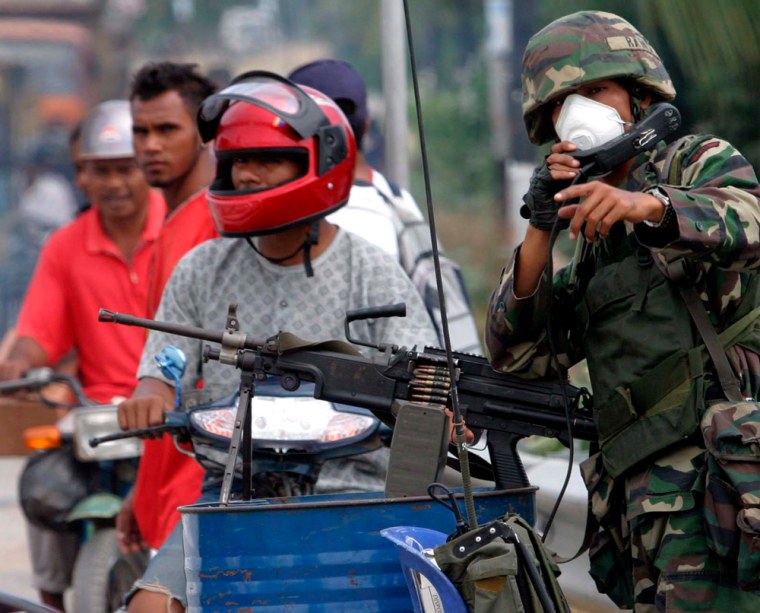Rebel soldiers holed up in hills around East Timor’s capital plan to start handing over weapons to a multinational peacekeeping force Friday, their commander said, in a step that could help end months of violence.
It was not clear what kind of weapons are held by the rebels, many of them ex-soldiers sacked from the army in March after complaining of discrimination within the military. The former soldiers fled the capital, Dili, in May amid clashes with loyalist forces.
“We just have to finish some paperwork,” Lt. Cmdr. Alfredo Reinado, who leads the dismissed soldiers, said from the mountain villa in the hills above Dili where he is now headquartered.
On Thursday, Army Brig. Mick Slater, commander of the Australian-led forces charged with restoring order to East Timor, said an agreement was being negotiated with rebels to surrender their weapons and make way for talks with the government.
Reinado said at the time he was awaiting a written order from President Xanano Gusmao.
Rebels back constitutional change
The rebel commander has said he prefers dialogue to force and backs a proposal by lawmakers to change the constitution and empower the president to create a transitional government until elections can be held next year.
After they were fired, some of the 600 ex-soldiers clashed with loyalist forces in April and May and left their Dili barracks for refuge in the hills, triggering a wider rebellion joined by youths and ordinary citizens.
Gunbattles between the police, loyalist troops and renegade soldiers were followed by fights between street gangs that terrorized residents and left hundreds of houses torched. At least 30 people were killed and more than 100,000 driven from their homes.
A handful of Australian forces are posted at the Portuguese, colonial-era villa where Reinado is based and other areas where former soldiers have gathered.
While the violence has ebbed since Australian, Malaysian, New Zealand and Portuguese security forces were deployed to patrol the streets and search cars for weapons, many in the camps remain too scared to return to their villages.
